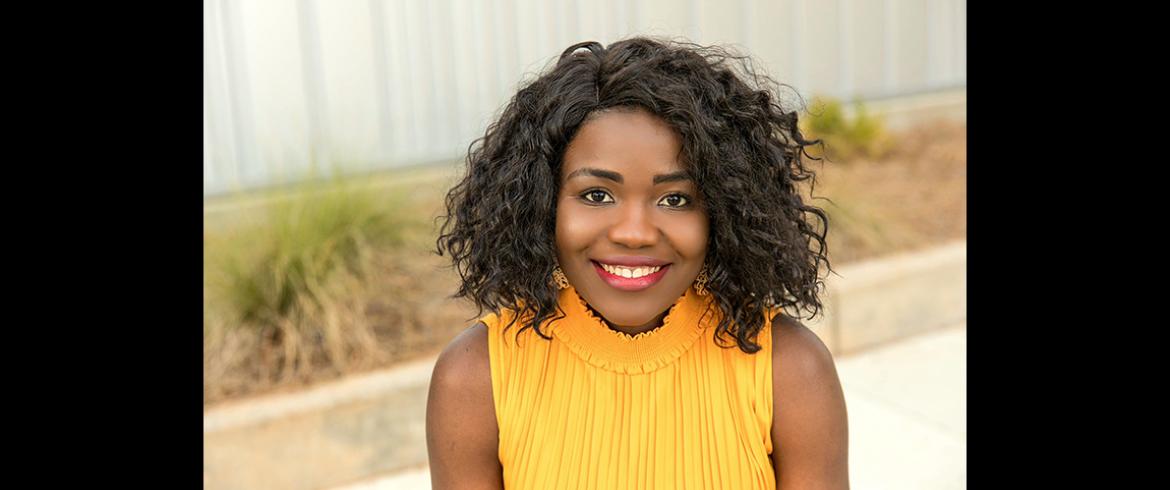
FAMU-FSU College of Engineering and Florida A&M University alumna Kike Ijagbemi. (Courtesy Ijagbemi)
When Kikelomo Ijagbemi was a young girl in Nigeria, her role model was her mother, a professor in mechanical engineering. This ignited a passion for women’s advancement to engineering, and Ijagbemi was headed for success right from the start.
The electrical engineering alumna of the FAMU-FSU College of Engineering earned a doctorate in 2021 through Florida A&M University and is a product engineer in the medical technology industry at Abbot Laboratories, one of the world’s leading medical device and pharmaceutical companies.
Professor Sastry Pamidi, chair of the college’s Department of Electrical and Computer Engineering and Associate Director of the Center for Advanced Power Systems, was Ijagbemi’s major professor remembers how she developed her talents and potential as a researcher.
“Kike performed her dissertation research at the Mag Lab and CAPS on a new technique for quench protection of high-temperature superconducting magnets,” Pamidi said. “She grew quite a bit as a researcher and developed professional skills during her Ph.D. program.”
“Using advanced research tools and techniques, Kike published several papers and presented at multiple international conferences,” Pamidi explained. “The knowledge, skills, and professional network she developed during the graduate program will serve her well to be successful in her engineering career.”
Ijagbemi recently shared some thoughts about her collegiate experience in engineering and her fondness for her alma mater.
What got you interested in engineering?
As the daughter of a mechanical engineering professor, I attended various engineering forums as a young girl, which helped shape my perception of the area of study. I am passionate about women’s advancement in their chosen careers.
What was your journey like as a student?
I completed my bachelor’s degree at the Federal University of Technology, Akure. After a successful exchange program at the FAMU-FSU College of Engineering, I pursued a doctorate in electrical engineering. As a student, I participated in professional societies at the FAMU campus and the College of Engineering.
During my Ph.D. program, I had the privilege of attending various engineering and superconductivity conferences and publishing papers in peer-reviewed journals.
What is your area of research?
My area of research is in the field of superconductivity. My research study involved designing power electronics hardware for driving high-frequency power pulses that safely quench large superconducting magnets without damage. Some superconducting magnet applications include MRI and NMR machines, mass spectrometers, energy storage systems and particle accelerators.
Was it helpful to go to an HBCU?
FAMU was home. I remember walking through the campus for the first time, feeling a great sense of belonging. FAMU promoted inclusivity and fostered opportunities for both domestic and international students.
What is your fondest memory of the FAMU-FSU College of Engineering?
Having access to facilities from both FAMU and FSU was the best part. The College of Engineering is an excellent reflection of both universities. I was mentored by brilliant professors and scientists from both institutions, and this opportunity gave me a well-rounded academic experience.
What is your best advice for students wanting to pursue engineering?
Explore areas that align with your strengths and interests. Build toward your career by acquiring the necessary technical skills. Finally, stay curious about advancements in your field.
RELATED ARTICLES
Boeing engineer, FAMU-FSU Engineering alum shares path to success
Engineering Mentorship Program Strengthens Pipeline of Minoritized Students in Engineering Careers
